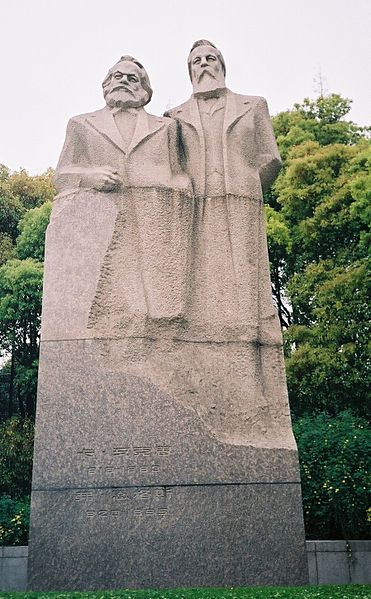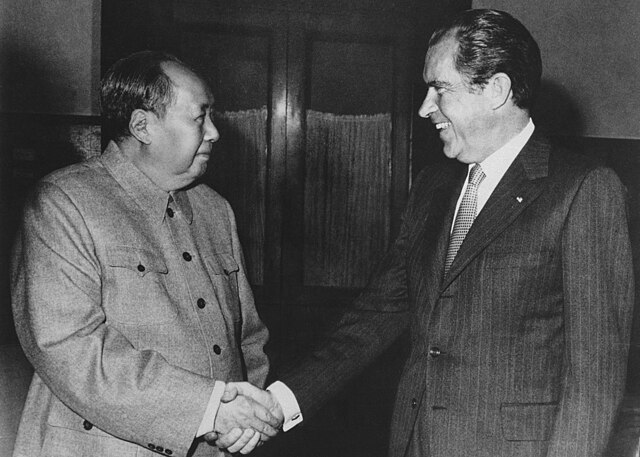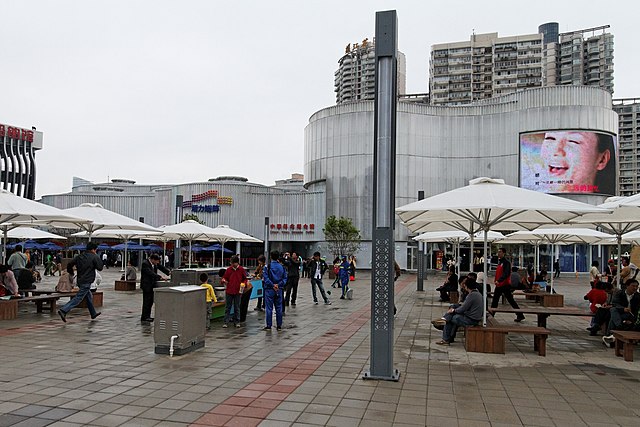Ideology of the Chinese Communist Party
The Chinese Communist Party (CCP) frames its ideology as Marxism adapted to the historical context of China, often expressing it as socialism with Chinese characteristics. Major ideological contributions of the CCP's leadership are viewed as "Thought" or "Theory," with "Thought" carrying greater weight. Influential concepts include Mao Zedong Thought, Deng Xiaoping Theory, and Xi Jinping Thought. Other important concepts include the socialist market economy, Jiang Zemin's idea of the Three Represents, and Hu Jintao's Scientific Outlook on Development.
A monument dedicated to Marx (left) and Engels (right) in Shanghai, China
Mao Zedong (left) meets with Richard Nixon, the President of the United States, on 21 February 1972
Private ownership of the means of productions were allowed as a result of the reforms.
Numerous books (as seen in the picture) about the Three Represents have been published.
The Chinese Communist Party (CCP), officially the Communist Party of China (CPC), is the founding and sole ruling party of the People's Republic of China (PRC). Under the leadership of Mao Zedong, the CCP emerged victorious in the Chinese Civil War against the Kuomintang. In 1949, Mao proclaimed the establishment of the People's Republic of China. Since then, the CCP has governed China and has had sole control over the People's Liberation Army (PLA). Successive leaders of the CCP have added their own theories to the party's constitution, which outlines the party's ideology, collectively referred to as socialism with Chinese characteristics. As of 2023, the CCP has more than 98 million members, making it the second largest political party by membership in the world after India's Bharatiya Janata Party.
Site of the first CCP Congress, in the former Shanghai French Concession
Chinese communists celebrate Joseph Stalin's birthday, 1949.
A temporary monument displayed in Changsha, Hunan Province, to celebrate the 100th anniversary of the CCP's founding
A monument dedicated to Karl Marx (left) and Friedrich Engels (right) in Shanghai







